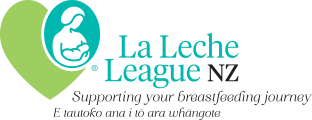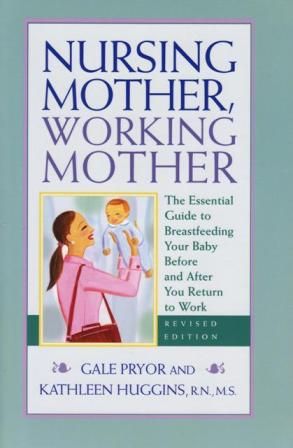Breastfeeding an Older Child and Weaning with Love
I have two beautiful girls. They are now aged six-and-a-half, and nearly four. I always believed I would breastfed my babies when I had them. My mother had breastfed my sister and me. She managed to breastfeed my sister for about five months until certain well-meaning health agencies suggested she was running out of milk when my sister seemed hungry and wanting more. In hindsight it is pretty obvious my sister was going through a growth spurt and trying to increase my mother’s supply. Mum was encouraged to introduce formula and there ended her breastfeeding relationship with my sister.
My mother was more determined when I came along and fed me
until I was 13 months old. In fact, mum told me often about how
the well-meaning health agency had continually advised her to stop
offering the breast and to get me onto a bottle. My mother stopped
telling them she was still breastfeeding and just did her own thing.
My mother had told me this story for many years and so I knew I
would breastfeed.
What I did not know was how long I would feed my children. When I was pregnant people talked a lot
about breastfeeding babies past six months of age. No one talked much about breastfeeding beyond a
year. When my first child turned 12 months I assumed she would just stop breastfeeding. I had no real
knowledge about longer term breastfeeding. Fifteen months came and Tia was still a motivated
breastfeeder.
Admittedly she was only feeding at night but I did not discuss with many people the fact she was still
breastfeeding. Most people I knew stopped before three months or just shy of a year. I felt quite alone
at the coffee mornings of my old antenatal class. I attended sporadically as the majority of mothers
had stopped breastfeeding.
I attended La Leche League meetings and received wonderful support and connection which inspired
me to continue. Eventually the breastfeeding decreased in regularity and I fell pregnant with baby two.
As the pregnancy progressed I became sick with nausea and tired. I was less motivated to breastfeed
Tia and strongly encouraged her to stop by not offering her the breast any longer and talking about it
being time to stop. By this time Tia was aged about two years and three months.
She called breastfeeding ‘mummy’s milk’. Eventually she accepted it was time to stop. Interestingly I
grieved for the closeness and relationship we had, especially when she woke at night with illness and I
could not settle her easily. Night feeding had settled her so successfully. This strategy had gone.
Baby number two arrived six months later, surprisingly by C-section. This was a disconcerting
experience for someone so committed to natural childbirth, however a footling breech baby required
intervention. Breastfeeding became established and my baby took to it with passion. Elyse fed
differently to Tia, feeding regularly and often. Having had the benefit of the first child experience I
relaxed and listened totally to my baby.
Our breastfeeding relationship progressed and my baby grew older and in size. Suddenly I was
breastfeeding beyond two years. Next she was two-and-half and showing no desire to stop
breastfeeding. Elyse was eating solids but still wanted to have ‘mummy’s drink’.
I had started relief teaching and would arrive back to collect Elyse from family who had cared for her
during my absence and the first thing she would seek would be mummy’s drink. This behaviour started
very early on – once Elyse could talk and walk. At times I found this tricky, especially around people
who were less supportive of breastfeeding an older child. Elyse grew older; suddenly she was three and
still a committed breastfeeder (feeding mostly at night).
I had established boundaries. I might add that Elyse protested verbally against each one and at times
her loud verbal protests meant I pulled back on the boundary for a while.
I let Elyse breastfeed only at home after a certain age and old enough to understand. We talked about
stopping at her third birthday and then at Christmas. My husband joked about which Christmas. The
next step was that she would only be allowed mummy’s drink at night. She was constantly waking at
night and seeking mummy’s drink and so that no one else was woken at night, and so I could get back
to sleep as quickly as possible, I continued to breastfeed her as she asked. Eventually I became tired of
this and so decided to put in the next step of the boundary. No more during the night.
Elyse continued to wake and ask for it and still can at times. I remained strong and said no. She
protested strongly but eventually accepted the change. This was quite an emotional time as I felt sad
and bad about the fact that I had stopped perhaps before she was ready. However, I was ready.
Aged three years and ten months she would have breastfed all the time I am sure if I let her. She had
mummy’s milk before bed each night. If I was away at bedtime she would settle without it.
I managed to convince her it was one side only. We alternated the sides each night. I often forgot
which side it was meant to be but the supply had dropped greatly. I knew that soon it would stop
totally.
I enjoyed breastfeeding Elyse for this length of time but noticed how I kept it to myself. In our society,
breastfeeding beyond one year is a rarity. Two years is okay and more acceptable now but beyond
three years? I am not embarrassed but unprepared to be misjudged by people who do not understand
a breastfeeding relationship with an older child. Some people can be quite rude with their comments
and strongly misguided.
My elder daughter is often quite sad that I did not feed her as long and makes little comments. If I had
relaxed more I may well have fed her longer too. As my confidence and knowledge has increased with
my second child I would probably feed any future children for as long or longer.
I have at times sought the advice and support of fellow LLL members who have had experience
breastfeeding older children. This was especially valuable at times when I was ready to wean totally
but my child was still very committed to breastfeeding.
The literature available in our LLL libraries is very helpful as well. Each breastfeeding relationship is
unique. Everyone has personal limits. I never started out thinking I would breastfeed a child for so long. Two-and-half years seemed long enough but even now looking at my girls I can see how young they are really. They are not little babies but they are still little children and infancy and childhood is such a short time in their life. They are both pretty healthy and rarely unwell.
The World Health Organisation advocates to breastfeed children beyond two years. It would be
fantastic if more people even made it to one year and beyond.
I am ready to end the breastfeeding relationship with my child but certainly have no regrets about the
length of time we have breastfed together. I am hopeful the real benefits will be more evident as she
gets older and reaches adulthood. Hopefully illness will continue to be a rarity for her.
Interestingly, just this week, aged three years 10-and-half months Elyse has finally weaned. I have
certainly encouraged this but also gone along with her desire to continue taking mummy’s milk. I had
concerns she may continue until she reached school age but finally she has stopped in her own time.
When I contacted a few LLL mums and support people over the last while as my willingness to
breastfeed Elyse decreased I was advised that eventually she would get there and that there were
various little things I could try.
The other day Elyse asked for mummy’s drink. I offered her the side that was due, as we had started
alternating sides as a way to decrease my supply gradually and her frequency!
She tried the offered breast and said, “Yuck! I don’t like it. It tastes yucky. I want the other side.” I said
“No that is your side.” But she persistently indicated she wanted to try the other side. I knew the
supply would have been low on that side but offered it to her. She tried it to find it was empty. So
reluctantly she went back to the side that was yuck. Well to her it was still yuck. In fact with
exclamation and disappointment she proclaimed it tasted like cat’s pee!! Not that she knows what
cat’s pee tastes like but obviously it no longer appealed to her.
I said, “Well it is all gone then.” Time to stop. So there it was. After such a long time of Elyse seeking
mummy’s drink she was quite accepting of the fact it was time to stop. Over the last few days she has
asked to feed but accepted easily the fact it has stopped. She is weaned.
Interestingly my emotions are mixed. I have enjoyed breastfeeding her. At times it has been quite a
commitment and a frustration but overall I have not resented it too greatly. I have known the benefits
of long term breastfeeding of our young ones and know that Elyse has benefited greatly.
Elyse is rarely sick and recovers quickly. During serious tummy bugs she has always coped well because
she has not struggled with dehydration due to the fact she has breastfed through each illness. Just this
week she has again fallen unwell with a tummy bug and is recovering very quickly.
There was an incentive for her to give up eventually. I had told her that when she finished
breastfeeding she could have something special. It was agreed she would get her ears pierced when
she finally weaned. So today, day four after weaning, she has asked to have her ears pierced. I was
happy for this to occur however she pulled out at the last minute; obviously she is not quite there yet.
I would support anyone who is nursing their child and wondering how it goes when they are older than
society expects. It’s a relevant topic at the moment with the recent publicity in the news.
From Aroha Vol 12, No. 4 July/August 2010

